Free-Range Parenting: Just the Right Amount of Freedom or Too Extreme?

Would you allow your 9-year-old child to take public transportation across town alone? How would you feel about encouraging your 8-year-old to bike alone to a friend’s house?
These are not just hypothetical situations but real-life parenting choices that have been subject to public scrutiny in the media in recent years.
These are just a couple of examples of activities that proponents of “free-range parenting” encourage their children to do when they feel they are mature enough to handle them.
In a world in which parents’ choices are often criticized from one side or another, the concept of free-range parenting provokes some important questions.
How can we balance encouraging children’s independence while keeping them safe? Are we impeding our children’s development in an effort to keep them safe at all times?
Related: 9 Surprising Ways You Might be OVer-Parenting Your Child
Understanding free-range parenting, as well as the beliefs and research behind it, can provide us with insight into these questions.
What is Free-Range Parenting
The notion of free-range parenting first emerged in public discourse in 2008 when writer Lenore Skenazy described how she allowed her 9-year-old son to take the subway alone to their home in New York City.
This caused a media storm, and the term “free-range parenting” was born.
Since then, the concept of free-range parenting has been a topic of discussion among parents and scholars alike. According to Skenazy and parents who practice free-range parenting, the approach is not about child neglect or even allowing children to take unnecessary risks, but rather allowing them more independence than society generally thinks children can handle.
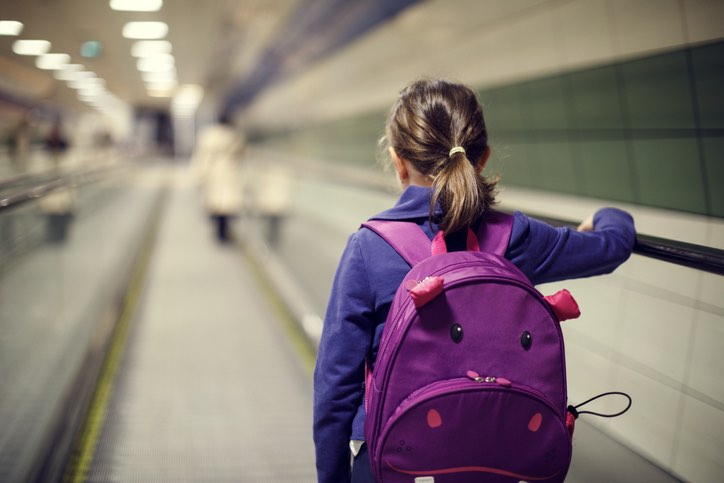
Skenazy went on to start a non-profit to promote these principles. She describes free-range parenting as based on the belief that, “…giving kids some unstructured, unsupervised time when we think they’re ready isn’t crazy dangerous. It’s normal.”
Although the term “free-range parenting” has been conflated with a huge range of “non-traditional” parenting choices, proponents of this approach generally focus on a smaller range of issues.
Free-range parents generally focus on allowing children time for plenty of unstructured play, encouraging them to explore playgrounds or parks without direct parental supervision, less frequent use of technology, and many opportunities for spendiing time in nature.
Additionally, free-range parents tend to base their decisions less on fear of children being injured or harmed. Instead, they try to consider if their child is responsible and ready to take on the added responsibility of independence.
One of the key components of the free-range parenting movement is based on the notion that children are much safer in today’s world than we are led to believe by the media. Although cases of abductions and violence against children make news headlines, statistics show they are actually quite rare and even less common today than in the 1980s and 1990s.
With these statistics in mind, free-range parents feel confident allowing their children the freedom to play on playgrounds and roam in certain areas unsupervised by adults.
What are the Benefits of Free-Range Parenting?

Parents who choose a free-range parenting approach believe that the benefits to their children’s development far outweigh any potential risks that they may encounter.
Although scholarly research has not delved into the concept of free-range parenting extensively, there are some studies that offer insight into the developmental benefits of this approach.
For example, studies of children’s independent mobility (i.e., freedom to travel independently from adults) have shown links to better mental health, physical health, and stronger map reading/orientation skills.
Beyond the benefits of independent mobility, proponents of free-range parenting suggest that this approach helps build competency in children, especially related to problem-solving skills and resilience.
When exploring on their own, unsupervised by an adult, children may encounter situations that require these skills to find their way home or cope with a challenge. Thus, skills like problem-solving, decision-making, and resilience in the face of challenges are developed naturally in free-range situations.
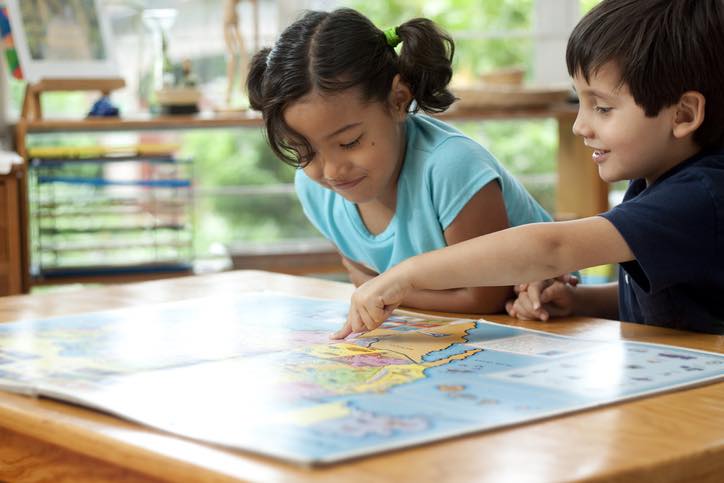
Similarly, free-range parenting may promote stronger social skills in young children. Learning to navigate the ups and downs of peer relationships without the assistance of parents is a key developmental task for children, especially as they approach adolescence.
Free-range situations often allow for many opportunities to practice these social skills as children interact with peers in a variety of settings. Some small-scale research supports this link between free-range parenting and the development of social skills in children.
Lastly, it is thought that free-range parenting may indirectly encourage greater physical activity in children by encouraging their participation in active, outdoor play with peers. Since free-range parents allow children to play outdoors more frequently without adult supervision this opens up more opportunities for children to be active.
Research shows some evidence for this link. Several studies have found that children who are more independently mobile (i.e., bike or walk independently from adults) tend to have higher activity levels.
What Are the Cons of Free-Range Parenting?
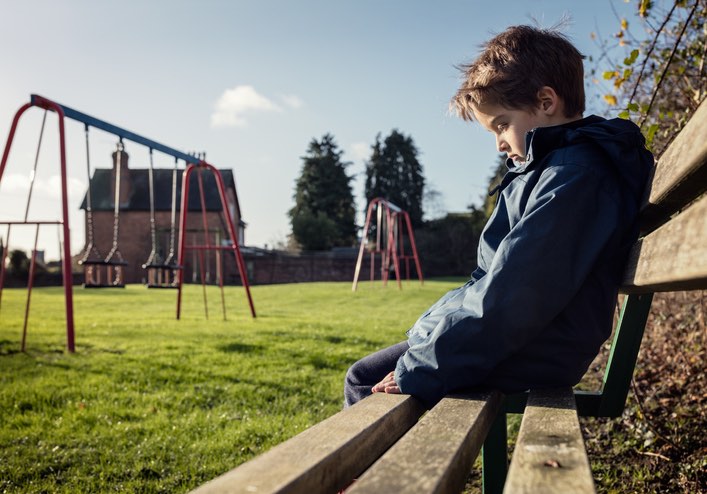
Even with all its benefits, free-range parenting is not without risk. Although crime statistics reveal that the risk of children becoming victims of kidnapping or violence is exceeding small, it is still present.
Free-range parenting practices which allow children to explore freely do run the risk of placing children in situations that they may not be adept at handling. Of course, most free-range parents mitigate these risks by discussing safety procedures with their children.
One key aspect of free-range parenting that many proponents discuss is the concept of individual readiness. Most free-range parents do not have a specific age in mind at which their child is allowed to roam unsupervised. Instead, they assess each child individually to determine their maturity level and readiness to take on this responsibility.
The other major risk that free-range parents often contend with is the legal system. Laws regarding when children can be left at home alone or even left unattended in a parked car vary widely from state to state.
Situations have emerged where children seen playing alone or walking home unattended by an adult have been brought to the attention of the police. In some situations, the parents have been accused of child neglect.
Related: How Does Lack of Attention Affect Child Development?
Many parents who practice free-range parenting have had to become more aware of their state’s laws regarding these issues.
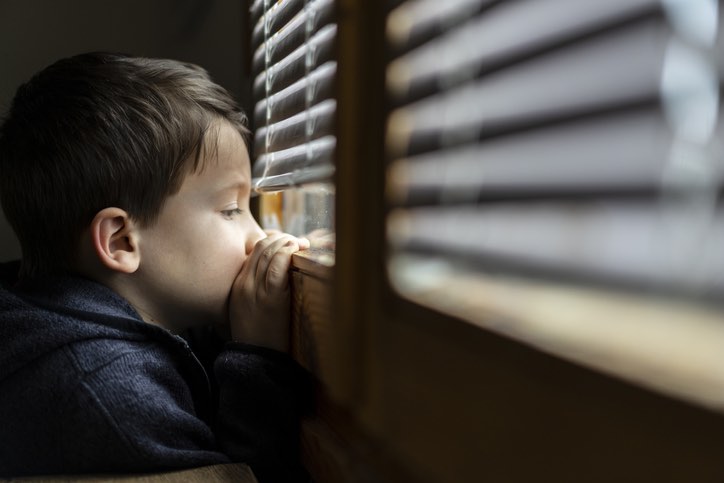
In response to these situations, many proponents have free-range parenting have become active policy change-makers. Relying on the research showing the benefits of allowing children more independence, free-range parents in several states have lobbied successfully to have child neglect laws changed so that children are allowed age-appropriate freedoms without fear of legal ramifications for their parents.
Most recently Utah, Texas, Oklahoma, and Colorado have passed such measures to narrow the definition of what is considered child neglect to allow parents more discretion when it comes to free-range parenting practices.
Free-Range Parenting vs Helicopter Parenting
No discussion of free-range parenting is complete without mention of the parenting style that is often considered its counterpart: helicopter parenting. As the name implies, helicopter parents are those that tend to “hover” over their children, trying to shield them from harm and micromanage their lives.
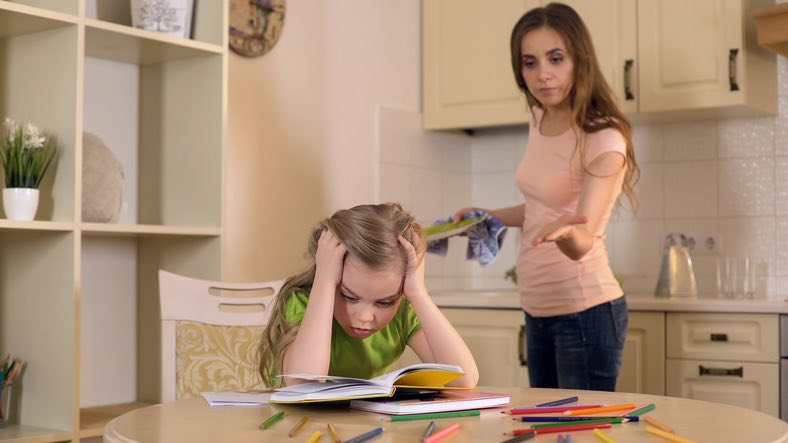
Helicopter parents usually have good intentions: they aim to protect their children, help them succeed, and often want them to have more opportunities than they had as children.
In their strive to protect their children, however, helicopter parents often end up overprotecting and limiting their children’s independence and growth of skills needed for adult life.
Specifically, this approach to child-rearing has been linked to poor emotional regulation skills in children. As children mature into adolescence, the ability to regulate one’s emotions and social interactions becomes increasingly important. Thus, lacking these skills can pose problems for children later.
It's clear to see how the vision of parenting expressed through free-range and helicopter parenting are vastly different.
While free-range parenting aims to foster independence and resilience, the goal of helicopter parenting focuses more on safety and protection (both physical and emotional).

As with many aspects of parenting, either of these approaches, if taken to an extreme can be detrimental to children’s development. Although free-range parenting fosters independence and resilience if taken to an extreme could lead to an overly permissive parenting style that lacks the structure and boundaries that children need.
Similarly, while helicopter parenting provides a sense of safety and security for children, if taken to an extreme can lead to an overprotective, stifling parenting style that limits children’s opportunities for skill-building.
Can You Give Children Too Much Freedom?
At the center of the debate concerning the appropriateness of free-range parenting is the concern about giving children too much freedom. Some parents struggle with the free-range parenting approach since it offers children the freedom to explore independently from adults.
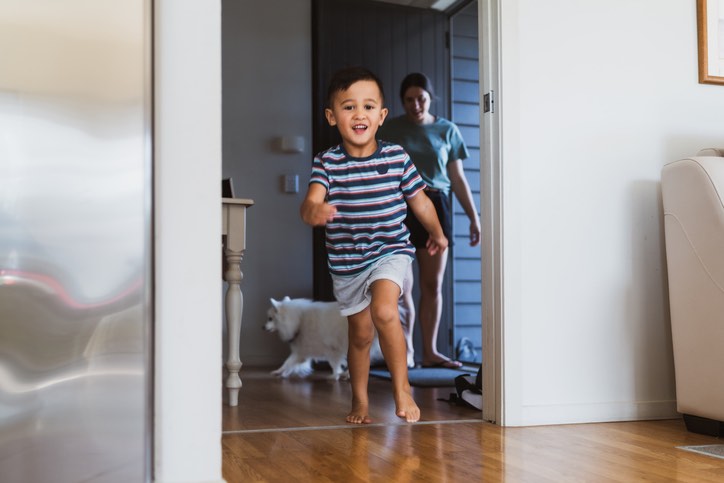
This exploration, while helpful in building much-needed skills, does open the possibility for danger. Parents may wonder if allowing their children this level of freedom will result in problems for their children down the road.
This concern is not far-fetched. We know, for example, that a permissive style of parenting that involves few limits or rules is associated with poor developmental outcomes for children.
Children of permissive parents have a greater likelihood of having behavioral problems, poor school outcomes, and trouble with self-regulation. Providing an abundance of freedom with few rules or boundaries does not support children’s innate need for security and support.

However, it seems clear that balance is key in this (and many) aspects of parenting. Offering opportunities for children to build skills and learn age-appropriate independence is distinct from permissive parenting.
A free-range parenting style that offers children autonomy-supportive opportunities while still maintaining boundaries and safety seems to provide a balanced approach.
Ultimately, the concept of free-range parenting raises one of the core parenting questions of our time: can we balance the desire for safety with our children’s need for autonomy?
This balancing act is one all parents must consider at some point in their parenting journey. Based on their children’s needs and temperaments, each family discovers its own best way to navigate this balance.
–
Find out more about what parenting style is the best fit for you and your kids in Parenting Styles to Emulate and Avoid.

